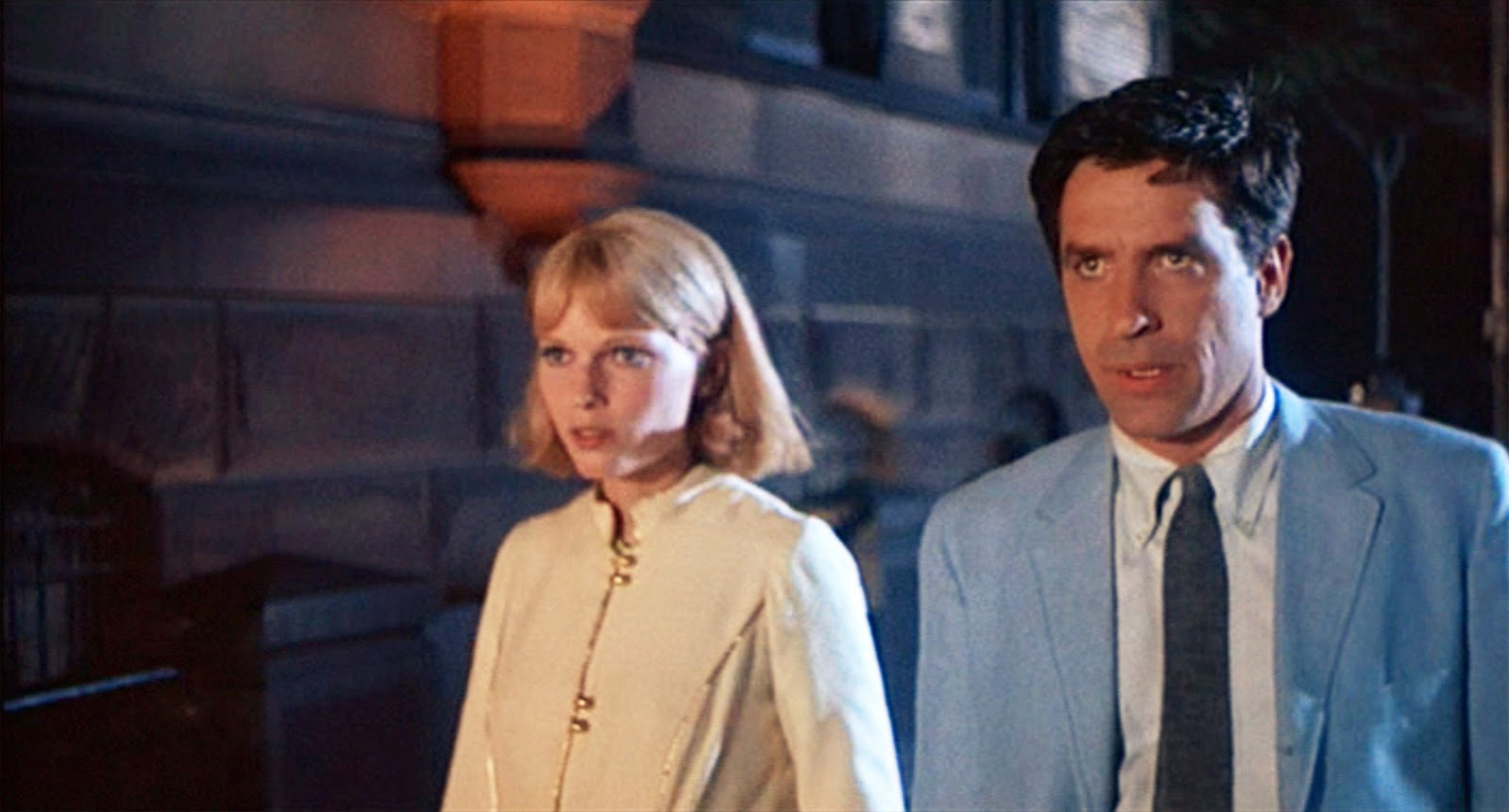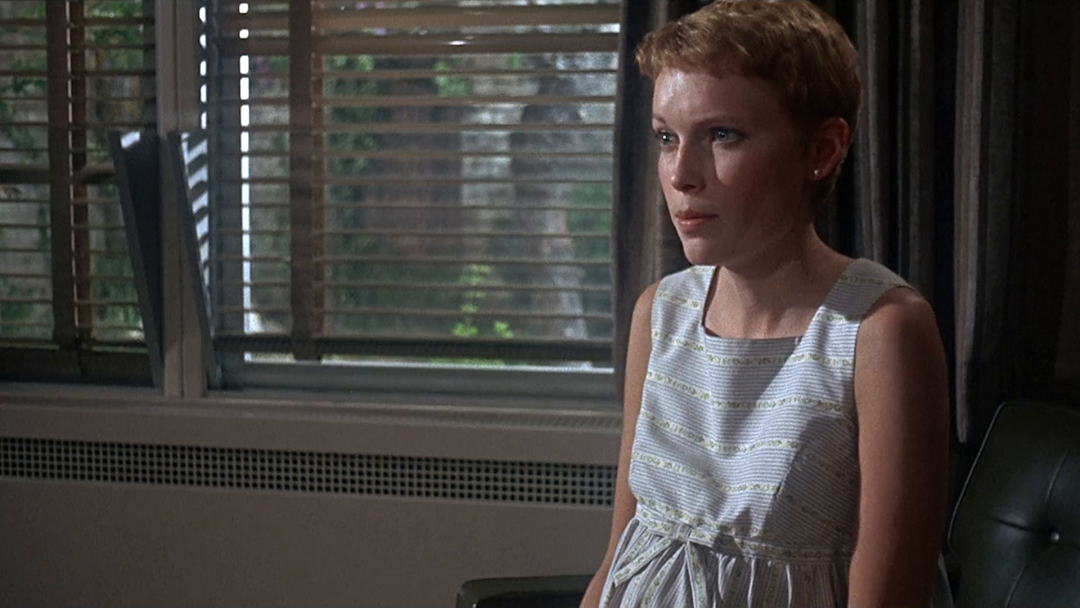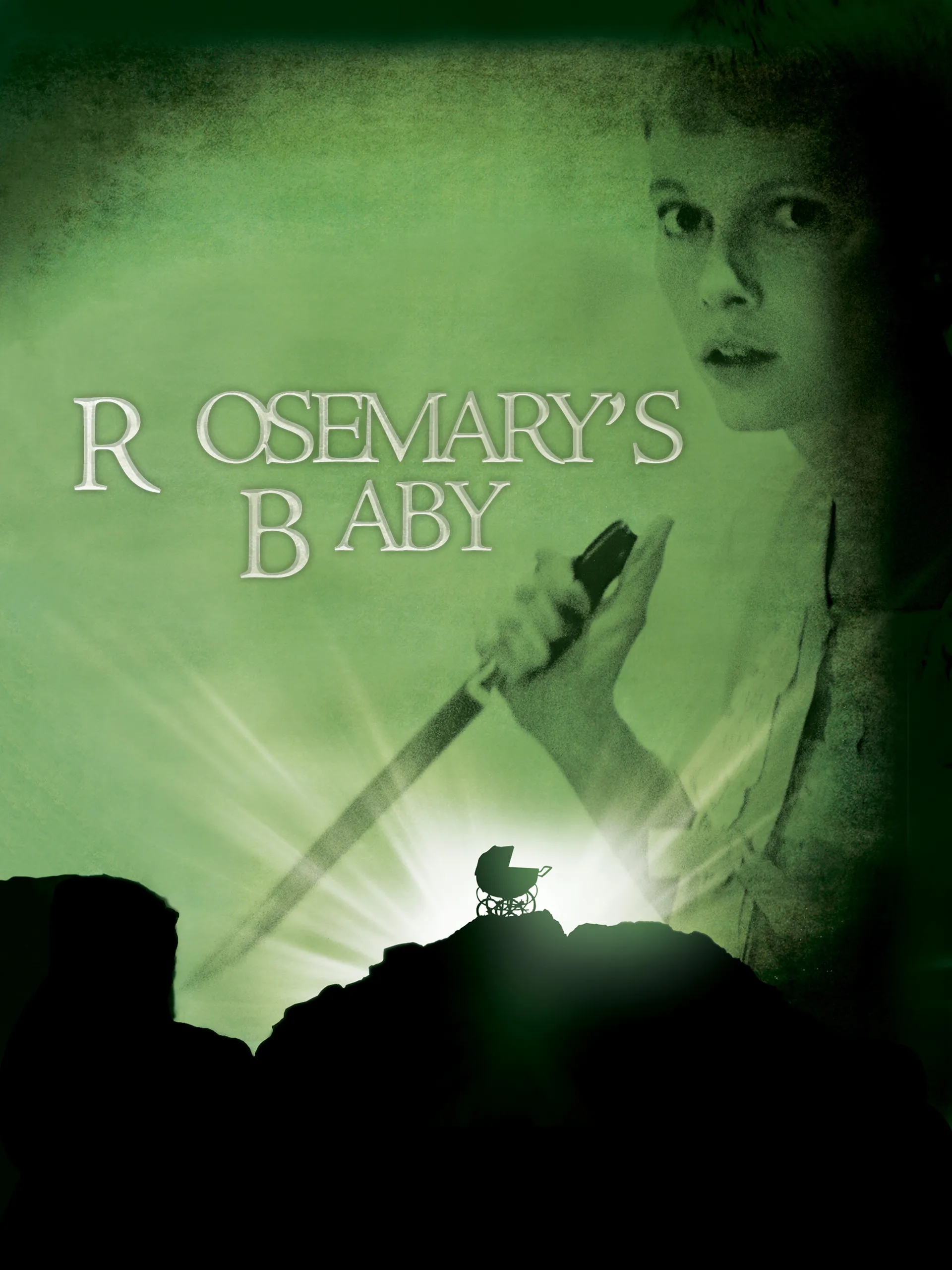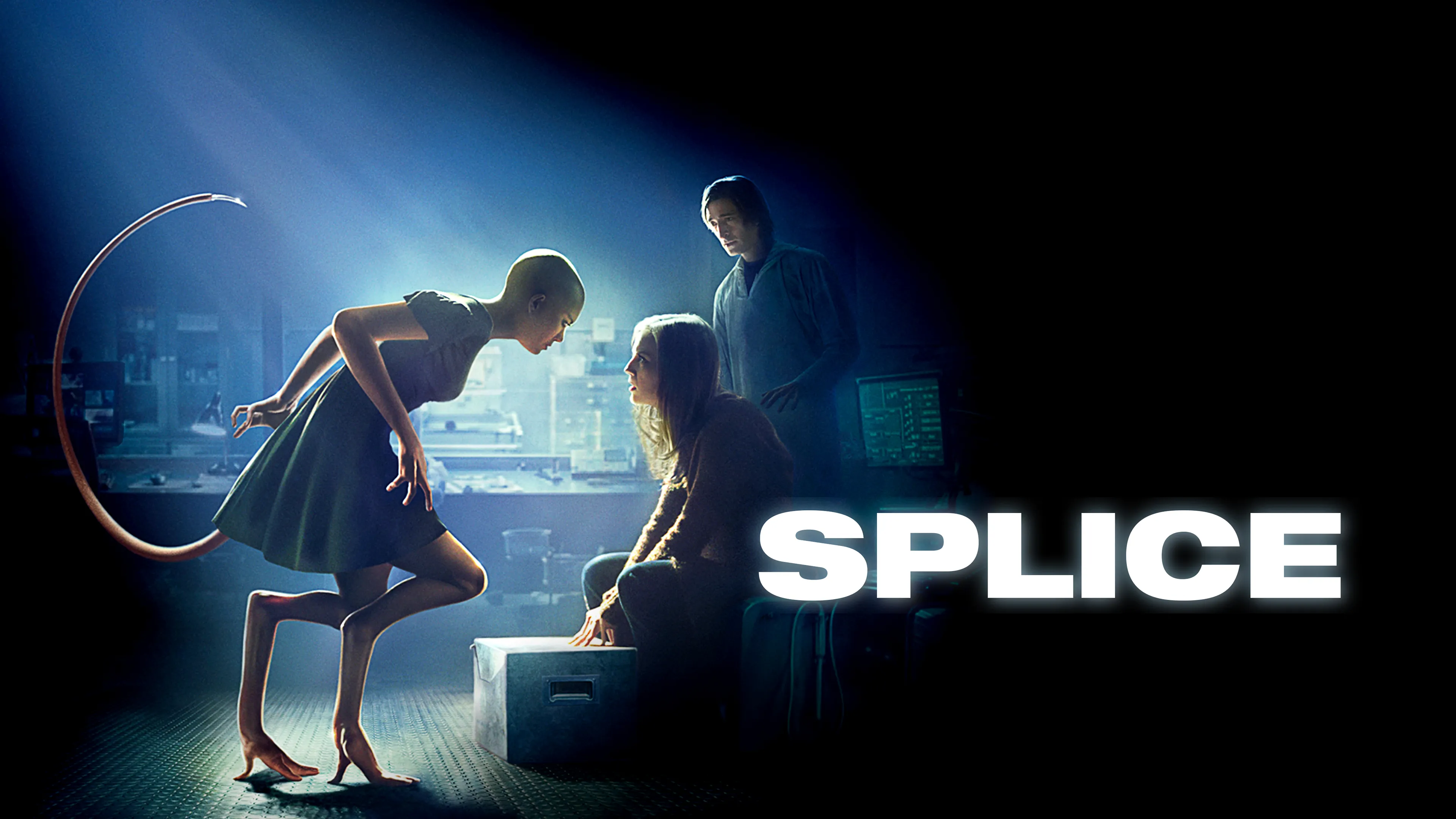Rosemary’s Baby is a psychological horror classic directed by Roman Polanski, based on Ira Levin’s 1967 novel of the same name. Starring Mia Farrow, John Cassavetes, Ruth Gordon, and Sidney Blackmer, the film tells the unsettling story of a young woman who becomes convinced that a sinister conspiracy surrounds her pregnancy. With its slow-burning tension, eerie atmosphere, and masterful storytelling, Rosemary’s Baby is widely regarded as one of the greatest horror films ever made.
The film follows Rosemary Woodhouse (Mia Farrow) and her husband Guy (John Cassavetes), a struggling actor, as they move into the Bramford, an old New York City apartment building with a dark history. Despite warnings about the building’s past, the couple is excited about their new home. Soon, they befriend their eccentric elderly neighbors, Minnie and Roman Castevet (Ruth Gordon and Sidney Blackmer), whose intrusive behavior gradually becomes unsettling.

As Guy’s acting career suddenly takes off under mysterious circumstances, Rosemary finds herself pregnant. However, her pregnancy is plagued by unusual symptoms, including severe pain, extreme weight loss, and terrifying nightmares. She begins to feel increasingly isolated as her husband, doctor, and neighbors dismiss her concerns and insist that everything is normal. As her paranoia grows, she starts to suspect that those around her have sinister intentions for her unborn child.

Rosemary’s investigation leads her to a horrifying discovery—her neighbors are part of a satanic cult, and they have chosen her baby to be the Antichrist. She realizes that Guy made a deal with them, trading her womb in exchange for fame and success. In the film’s chilling climax, Rosemary finally sees her baby and is horrified by his demonic appearance. The cult members tell her that her child is Satan’s son, destined to bring darkness to the world.
One of the film’s greatest strengths is its slow, psychological buildup, which creates an overwhelming sense of paranoia. Unlike traditional horror films that rely on jump scares, Rosemary’s Baby uses subtle clues, disturbing imagery, and psychological manipulation to create an atmosphere of dread. The horror lies not in what is shown, but in what is implied, making the film even more unsettling.

The performances, especially Mia Farrow’s, contribute to the film’s haunting effect. Farrow perfectly portrays Rosemary’s descent into fear and helplessness, making the audience empathize with her struggle. Ruth Gordon’s performance as Minnie Castevet also stands out, earning her an Academy Award for Best Supporting Actress. The film’s cinematography, eerie musical score, and realistic approach further heighten the sense of unease.
Rosemary’s Baby remains a landmark in horror cinema, influencing countless films such as The Omen (1976) and Hereditary (2018). Its exploration of themes like paranoia, bodily autonomy, and betrayal makes it just as relevant and terrifying today as it was upon its release. With its masterful storytelling and chilling atmosphere, the film continues to captivate and disturb audiences, solidifying its place in horror history.



